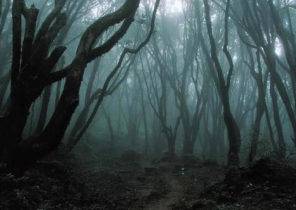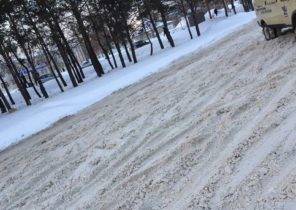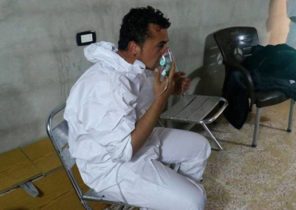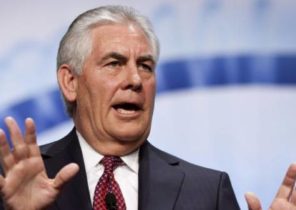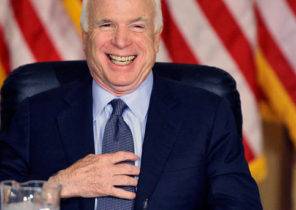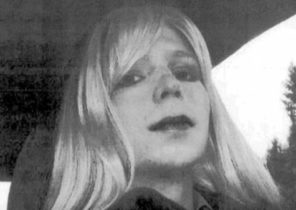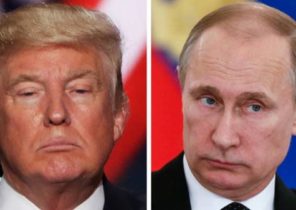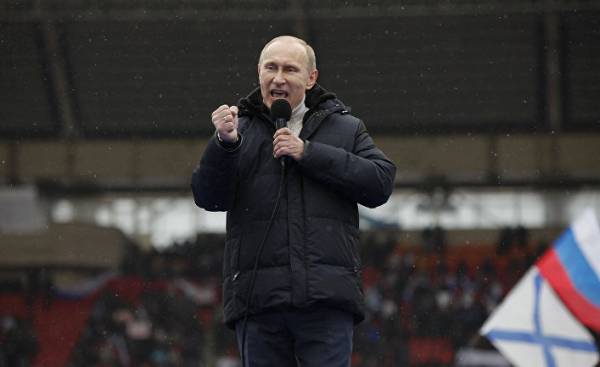
Now the crowd of reporters roam the American heartland, trying to figure out what they missed before the presidential election. I have more than 20 years doing the same thing in Russia, trying to assess the consequences of the collapse of the Soviet Union.
Indeed, thanks to his experience as a journalist in this country, in which I periodically visited since the 1970’s, I was sure that Moscow is not Russia.
By 1993, despite all the praise for the Yeltsin government, which did not stint the West, with optimism in regards to its prospects and provide it with support, my trip for the outer ring road convinced me that the situation in the main part of Russia remains extremely precarious. So I took the card, chose one and since then and until 2015 there are regularly raided. However, thanks to Skype, I still continue to maintain contacts with the people there. Lying a thousand miles East of Moscow, Chelyabinsk oblast — severe suffering from industrial pollution the region the size of Belgium and with a population of three million people. The situation it is typical of much of the country outside the capital. Unlike almost bursting at the seams from the influx of people and money of Moscow, Chelyabinsk, dependent on metallurgy, mining and old military factories, fought for life, and continues to fight.
Until 1993, the area is considered closed. Then it was opened for foreigners. At the same time, it enjoyed the free market — and how to live in the conditions she did not understand. Still had hopes for “democratic reforms” which were supposed to provide the country Western prosperity and liberty, but life in the region was heavy. In the mines and factories did not pay wages. Doctors depended on Western aid. They lacked medicines and x-ray films. People interested in religion and new ideas, crowds flocked to the activities of Western missionaries, and frozen in the past, the Russian Orthodox Church continued to cover the dome with gold.
In the region began to penetrate the Western funds, fighting for human rights and promoting environmental and social programs. However, for the most part people were left to fend for themselves.
They have lost a job when the corrupt Directors and officials — both active and former, — sold off the factories in the name of privatization and with the blessing of the West supported Yeltsin government. When I noticed that stolen Russian industry the Russians themselves, one engineer replied: “You [the West] has taught us how to do it, and we are good disciples.”
Collapsed marriages. The face of the shameful unemployment men give up, lay down on the sofa and drinking. Children were given up for adoption to foreigners that Russia started extremely to be ashamed of. In 1996, the region voted for the return to power of the Communists. Boris Yeltsin, with the support of the U.S. — rigged elections and managed to temporarily install the power of its bureaucrats. In 1998 it got worse. Russia defaulted. Residents of the area have again lost their meager savings, but the oligarchs enriched as a result of fraud involved in which the Russians — not without reason — considered the West.
I’ve seen people in Chelyabinsk have begun to look for identity Russian identity — which would allow them to be proud of themselves. The sudden arrival of Vladimir Putin to power in 2000 for many was a godsend.
Putin did not look like the aging Yeltsin, sadashige Russians, his drunkenness. It was a sober young leader who was able to cope — albeit very violent means — with the Chechen rebels, which was the first step in restoring confidence to the army and security services. How exactly he did it, people were interested enough. Rampant crime has been contained. Rising prices for oil, gas and other raw materials helped to increase social spending. Loans and mortgages have suddenly become available. There was a modest middle class.
Corruption has persisted and even got worse, however, the process was a downside. Residents of the area complained constantly, but they gradually became more. Started to have small cafes and restaurants, early flourished in Moscow, but not here.
People even began to buy cheap package tours abroad. In the mid-2000s Chelyabinsk has changed beyond recognition. Not far from still standing in the center of town a statue of Lenin arose pedestrian street in the style of the famous Moscow Arbat where the restaurants with a cappuccino and sushi were interspersed with shops of the famous networks. In the growing suburbs of the new housing to solve the chronic housing issue, heralded by IKEA.
This resulted in the revival of faith in Russia and the growth of hostility to the West — despite the ongoing thrust to the West. Tired of self-flagellation, which were eagerly supported by the rest of the world, more and more people in Chelyabinsk wore Orthodox crosses. The people were disillusioned with the Western financial intervention. In addition, although the West never gave the word not to expand NATO, not to use the weakness of Russia he at the time promised.
In the end, against the background of NATO expansion to Russian borders and clearly neglect USA to Russian concerns Putin brilliantly was able to use these festering wounds, in speaking about the revival of national identity and national pride. Giant Moscow demonstrations 2010-2011 (SIC — approx. transl.), against corruption in the political elite and actively reported by the Western media, was not picked up by the province. And Putin, for all his faults, there still continued to see the Savior.
Of course, the growing power of Putin was faced with some resistance, but the regime easily triumphed over the opposition — weak, confused and fragmented. My fellow journalists were desperate.
They saw their freedom to speak out against Putin reduced. Local business for fear of visits by tax police, refused to advertise in publications that were not openly Pro-Putin. Corruption is so spread that mess it was all. Therefore, everyone was afraid.
However, what is happening was seen as an internal affair of Russia. When Hillary Clinton compared Putin to Hitler, it only strengthened his popularity. Learning more about the problems of other countries — and in particular the problems of the United States, people increasingly rejected criticism from the outside.
I once asked one of his friends what he thinks about the police state that Putin is building and the obvious corruption of the regime. He said, “in case of fire do not ask if the person is a firefighter”. Point.
Capture Putin of the Crimea, historically part of the former Russia, has approved the vast majority of Russians, including many opposition members. I have many years asked my friends in Chelyabinsk — from teachers to construction workers and janitors, — where are those red lines that Putin should not go. I was often told that such a feature is restriction of the Internet. Putin deftly handled, periodically introducing certain restrictions, but leaving your network open enough to suit the majority. Prevent human rights defenders to speak out, declare them “foreign agents” and deprive them of Western funding, the society did not protest against it. With regard to the economic recession, sanctions, and the continued dependence of Russia on oil prices and gas, which continue to decline, local residents enable you to let off steam with protests against the rising cost of utilities, however, the popularity of Putin is not reduced by this. Many still believe that — given Western attempts to isolate Russia — the country must become self-sufficient and that, although now people have a hard time getting in the long run life will improve.
The borders still remain open, and those who don’t like what is happening, you can leave. Stubborn and fearless journalists who have lost their job and any chance to find her, seeking refuge outside the country. Many talented people from other industries, who see opportunities abroad, too, are voting with their feet. Some of my friends from Chelyabinsk trying to protect themselves from future uncertainties, giving birth to children thousands of miles from Russia, in Miami. However, among those who remain, Putin still retains an overwhelming popularity, and disagree mostly prefer to remain silent.
What would be possible to rebuild such structures during the cold war, like NATO or existed in the 90-ies, they were lost. Now restored and distrustful Russia believes that she is surrounded by enemies, and itself perceived as the enemy — if not Donald trump, many others on Capitol hill. Clumsy and demonstrative initiatives trump not yet lead to anything good. In addition, the same calls to “return the country to greatness,” which some years ago spread among the Russian wounded, it is now possible to hear from confused Americans. That is exactly what the emerging tragedy.
